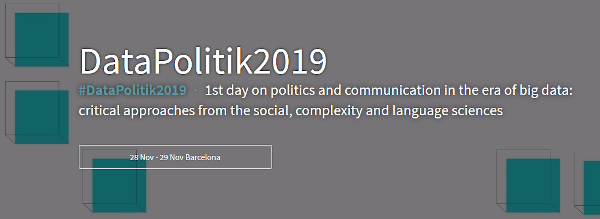Events
- 2020
- Past events
-
Speaker
Aneta Stefanovska (Lancaster University, UK)Description
In the real world, any system under study is subject to external perturbations. Mostly, these are either neglected, taken as part of the system, or treated as a noise. In this talk, we propose a fourth approach, which is to treat the system under study as being nonautonomous. We consider the particular case where there are perturbations to the phase of an oscillatory system. We will discuss the stability properties of such coupled systems and networks, and present a set of algorithms, from our toolbox MODA, that can be used for extracting their finite-time dynamical properties. The approach will be illustrated by applications to living systems including cells and the brain, as well as to physical systems such as rogue waves and electrons on the surface of superfluid helium.
-

Speaker
Dr. Markus Abel (Potsdam University & Ambrosys, Germany)Description
Recently, the term explainable AI became known as an approach to produce models from artificial intelligence which allow interpretation. Since a long time, there are models of symbolic regression in use that are perfectly explainable and mathematically tractable: in this contribution we demonstrate how to use symbolic regression methods to infer the optimal control of a dynamical system given one or several optimization criteria, or cost functions. In previous publications, network control was achieved by automatized machine learning control using genetic programming. Here, we focus on the subsequent analysis of the analytical expressions which result from the machine learning. In particular, we use AUTO to analyze the stability properties of the controlled oscillator system which served as our model. As a result, we show that there is a considerable advantage of explainable models over less accessible neural networks.
- 2019
-

Speaker
Hugues Chaté (CEA-Saclay & Beijing CSRC, PRL Editoral Board)Description
Active matter consists of elementary units producing mechanical work to move themselves or to displace other objects. In other words, active matter is about systems maintained out-of-equilibrium "in the bulk", burning energy to produce directed, persistent motion.
This very general definition covers all kinds of situations at all scales: groups of animal or robots, collective of cells and micro-organisms, active colloids and phoretic swimmers, mixtures of biofilaments and motor proteins. Most active matter systems exhibit surprising if not spectacular emerging collective properties that we are only starting to understand.
In this talk, I will strive to give a synthetic and organized overview of what is still a fast-growing field. This overview will however be rather personal, drawing mostly from my own work. A large part if the talk will be devoted to presenting experimental results obtained mostly on living active matter, which should be of interest to biologists.
-

Description
Esta jornada quiere ser una invitación al diálogo interdisciplinar y a la puesta en común de perspectivas metodológicas, visiones sociopolíticas, resultados concretos y líneas de investigación acerca de cómo los entornos digitales han cambiado la estructura de la comunicación y las gramáticas de interacción social. Un primer paso para constituir espacios en los que la ciencia de la comunicación, la sociología, la politología y la ciencia de los sistemas complejos, entre otras disciplinas, colaboren para mejorar nuestra comprensión de lo que ocurre en las plataformas sociales.
Organizers
Heurística + Tecnopolítica -
Speaker
Prof. MooYoung Choi (Department of Physics and Astronomy, Seoul National University)Description
Every object we experience with our sensory organs is a many-particle system consisting of a large number of elements interacting with each other, and the collective behavior of the whole system emerges via cooperative phenomena due to the interactions. In nature, many-particle systems often exhibit so-called complexity at the boundary between order and disorder, and tend to have self-organized structure under the influence of the environment. From this viewpoint of the complex system, not only traditional matter but also life and society are complex systems composed of many elements; life or social phenomena can be interpreted as the collective properties emerging from the interactions between elements. In this overview, we will briefly examine the physical meaning of complex systems and introduce some studies of matter, life, and society in the complex systems perspectives. Instances include glucose regulation, neural networks, urban morphology, and transportation networks.
